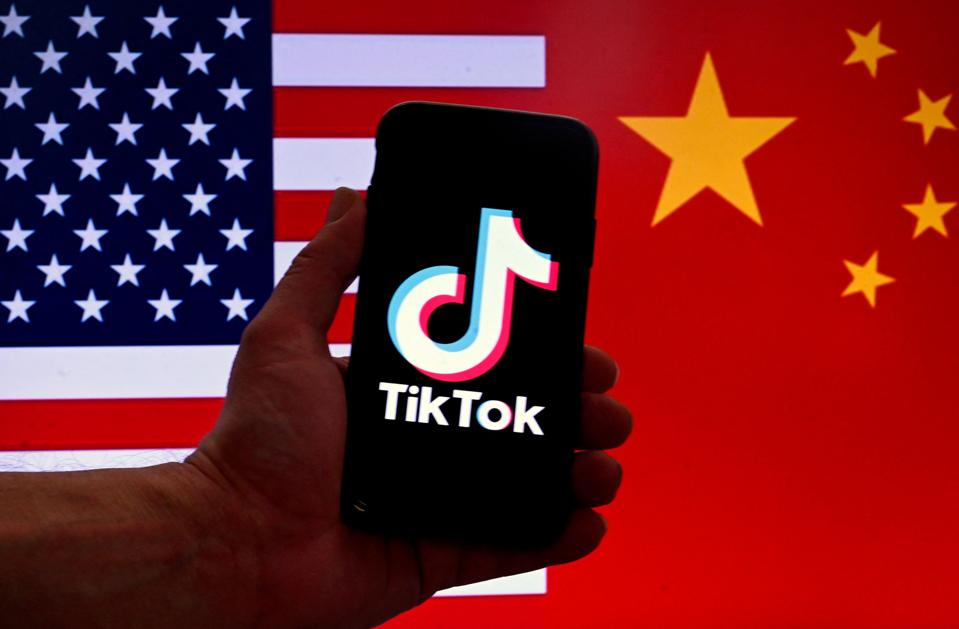On Wednesday, President Joe Biden signed a bill that will force either the sale or shutdown of TikTok over national security concerns. This has been a long time coming, and it’s only one small element of an overdue examination of the United States’ relationship with China.
The two countries are major trading partners, and companies—and our governments—have vast financial entanglements. Despite such deep economic ties, it’s important to recognize that China may not necessarily be a friendly partner. Grappling with this reality will not be easy, however.
TikTok is a prime example of how fraught this relationship has become.
The app has operated for years in the US, despite ample national security concerns. FBI Director Christopher Ray has argued that TikTok parent company ByteDance’s relationship with the Chinese government amounts to giving them the keys to American’s newsfeeds. The worry is that the Chinese government, by way of ByteDance, could manipulate the app’s algorithm and thereby influence the videos and news shown to Americans. In an election year, this is a serious concern.
Although the recent conversation has centered around spinning off the company’s American operations, this may be a dubious proposal. From a business perspective, how valuable is a social media service that is cut off from a major country like China? Who would even be in a position to buy it?
Obviously, Facebook has long been prohibited by the Chinese government, so there is precedent, but the effect of such restrictions on the value of TikTok must be considered. And what about impending lawsuits from the FTC alleging the company lied about privacy protections for children?
Penalties in those cases could run to the billions.
From a national security perspective, even if it is sold, can we ever fully trust that an American TikTok would truly be secure, without backdoors or other means of the Chinese continuing to harvest data from it?
A total ban could be the best option, but even Biden’s signature may not be enough to get that done, at least not for a while. The law itself provides a 270 day window for the sale of the company, and lawsuits will probably slow that process even more.
And yet, the focus on TikTok alone distracts from larger challenges in the United States’ relationship with China.
Take the current race to perfect and deploy AI tools. AI will be a huge economic engine, improving productivity and enhancing margins. At the same time, it can be potentially very harmful if it is developed or deployed unethically or without regard for how its disruptions will impact real people and workers.
Right now, the United States is a global leader in AI, and the Chinese are playing catch up. Yet, there are real concerns that China is seeking to steal AI technology to boost its own efforts, including intelligence gathering. And it’s not limited to AI; the theft extends to biotech, quantum computing, and beyond. The fact that TikTok has been able to act as it has for so long without consequences brings into question our ability to protect ourselves or to deal effectively with Chinese AI efforts.
Do we trust that the Chinese government won’t use AI to create deep fakes, fake news, or carry out other efforts to sow disinformation and discord in our society? And that’s just the tip of the iceberg of potential, malicious applications for the technology.
The situation with Russia and Ukraine complicates matters further. Chinese President Xi Jinping has shown that he’s willing to align with Russia. As the war in Europe drags on, this will force the U.S. to reconcile with how close it wants to be with a major Putin ally and whether our economic engagement with China is inadvertently supporting the Russian war effort.
This is a complex matter, as American-Chinese relations have always been. However, that doesn’t mean we shouldn’t take it seriously. While dealing with TikTok is an important first step, it cannot be the last step. We need a clearly articulated plan for protecting our AI assets from theft, combatting false narratives and media created by AIs, and modulating our engagement if Xi embraces Putin.
In 2021, former Secretary of State Henry Kissinger told an audience at Chatham House that the United States needed to reach an understanding with China. “If we don’t get to an understanding with China on that point, we will be in a pre-World War One-type situation in Europe, in which there are perennial conflicts that get solved on an immediate basis but one of them gets out of control at some point.”
Well, the clock is ticking, and we’ve yet to reach an understanding. How much longer can we wait?

